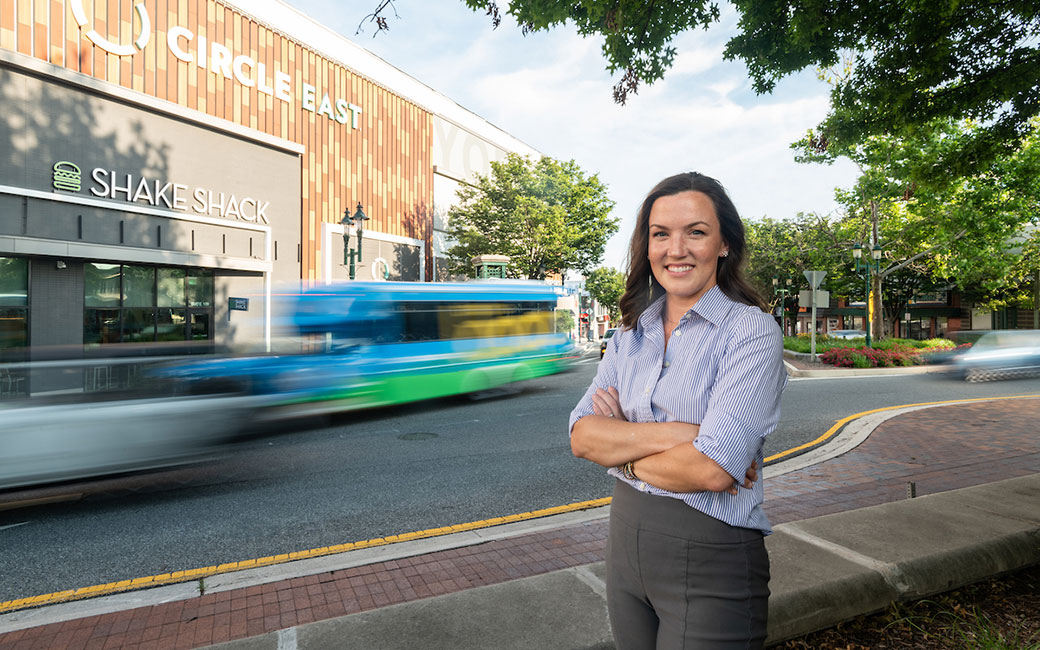OT professor uses GPS mapping to study aging in place, develop interventions
Heatwole Shank receives American Occupational Therapy Foundation grant to develop strategies for older adults
By Rebecca Kirkman on April 27, 2022

The 65-and-over population in the U.S. has grown by more than a third in the past decade as Baby Boomers age, and older adults often face barriers to participating in day-to-day activities outside of the home due to cognitive and physical changes.
With a grant from the American Occupational Therapy Foundation (AOTF) awarded during Occupational Therapy Month, Towson University associate professor Kendra Heatwole Shank will build on her prior research to develop strategies and tools for aging in place. The project will assist older adults in the region while providing interdisciplinary research opportunities for TU students and faculty.
“Engaging beyond the home is instrumental to health, well-being and identity, and we need to better understand and support these capabilities as a substantial portion of our population enters this phase of life,” Heatwole Shank says.
This is the first award the Department of Occupational Therapy and Occupational Science has received from AOTF, notes department chair and professor Beth Merryman. “This is a great achievement,” she says. “It is reflective of scholarly rigor as well as the project’s alignment with the objectives of the award.”
AOTF grants support its mission to advance the science of occupational therapy to support people's full participation in meaningful life activities.
The purpose of the one-year, $50,000 intervention research grant is to provide seed funding for the development of this novel program to generate preliminary data as proof of concept—a critical step to acquiring larger funding in the future. Heatwole Shank is one of five intervention research grant awardees across the country, who represent San Jose State University, Ohio State University, Cedars-Sinai and Indiana University Indianapolis.
Heatwole Shank says the funds will go toward translating her prior research into an intervention program called “Aging, Cognition and Meaningful Engagement (ACME)” that will eventually be available to older adults in the region.
“Changes in cognition, like short-term memory lapses, problem-solving or wayfinding challenges pose a barrier to aging in place,” she says. “The ACME program will address cognitive strategies, skills training, environmental modifications and adaptive technology as well as community navigation strategies and education about the role of community participation in maintaining a positive quality of life.”
Notably, her scholarship in the field incorporates GPS technology to collect data and create maps of the day-to-day life of older adults. “It has helped to identify patterns, potential barriers and strategies that compensate for challenges,” she says. “I plan to continue using the GPS technology to help older adults learn personalized ways of engaging in and navigating through the community, which makes for individualized and effective solutions.”
Heatwole Shank will engage an interdisciplinary team and community partners to develop, test and pilot the sessions at Towson University’s Institute for Well-Being.
“I am excited to involve students in all phases of this project,” Heatwole Shank says, noting the grant will fund positions for student researchers, with the potential for additional roles with future funding. “Occupational therapy students will participate in the data collection and analysis, and it offers another meaningful exposure to research and to a clinical population as part of their graduate professional education.”